The SEEd.Lab industrial visit, part of their Entrepreneurial Finance module, exposed students to social entrepreneurship and innovative financing, showing how start-ups balance profit with purpose and fostering an entrepreneurial mindset; students were inspired, gaining new perspectives on finance’s role in social change and advocating for more practical industry exposure.
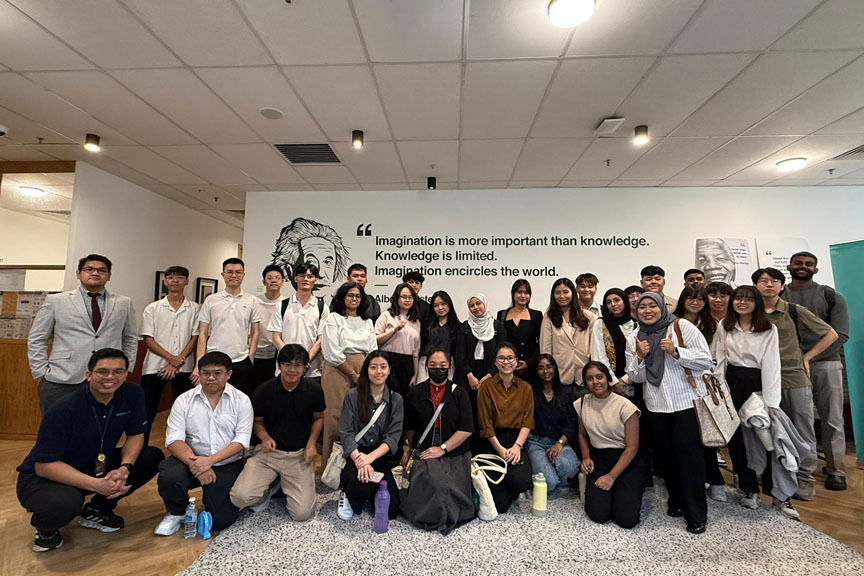
Recently, 29 students and two dedicated lecturers from Asia Pacific University of Technology & Innovation’s (APU) School of Accounting & Finance (SoAF) embarked on an insightful visit to the Social Enterprise Education Lab (SEEd.Lab).
SEEd.Lab, a pioneering initiative jointly run by PETRONAS and Tata Consultancy Services (TCS), is a dynamic platform dedicated to nurturing the next generation of changemakers.
Its mission is to empower young graduates and budding entrepreneurs to establish sustainable enterprises that tackle pressing social and environmental issues, ultimately creating a positive impact on communities.
From initial concept to full commercialisation, SEEd.Lab provides comprehensive support to help these ventures develop, scale, and thrive.
This industrial visit was a vital component of the ‘Entrepreneurial Finance’ module, part of the Bachelor in Banking and Finance with a specialism in Financial Technology (FinTech).
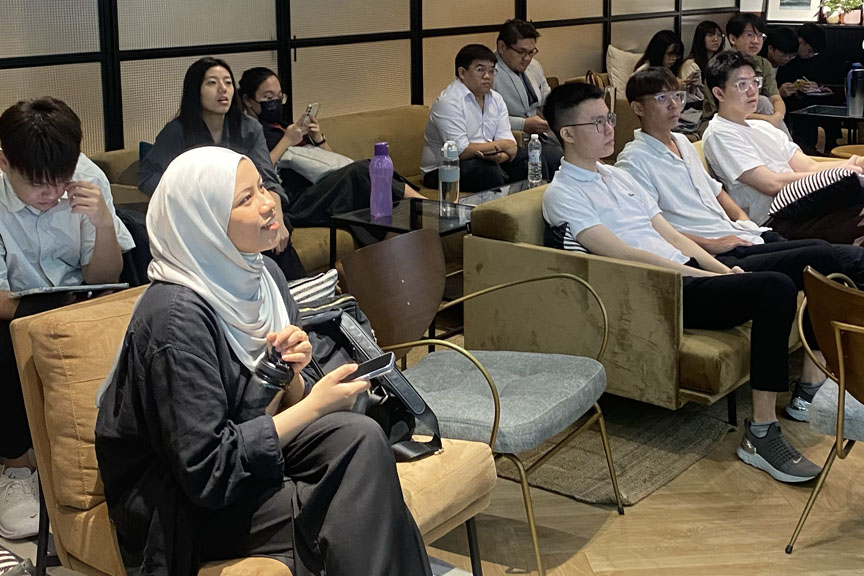
The primary aim was to immerse students in the practicalities of social entrepreneurship and the intricacies of financing innovation-driven businesses.
A key objective was to deepen the students’ understanding of how start-ups can effectively balance profit with purpose by showcasing the structured stages of development, from pinpointing societal ‘pain points’ to successfully commercialising validated solutions.
Furthermore, it highlighted how Corporate Social Responsibility (CSR)-aligned funding, expert mentorship, and robust ecosystem support can drive innovative solutions that genuinely benefit underserved communities.
“This visit was directly aligned with the students’ new venture project assignment, where they are tasked with developing and pitching a socially impactful business idea,” explained Ms Durrah Dhaniyah, who accompanied the students alongside Senior Lecturer Dr Ahmad Danial Zainudin.
“The session aimed to inspire students to approach entrepreneurship with both purpose and sound financial strategy, seamlessly blending their classroom knowledge with invaluable real-world insights.”
Experiential learning opportunity
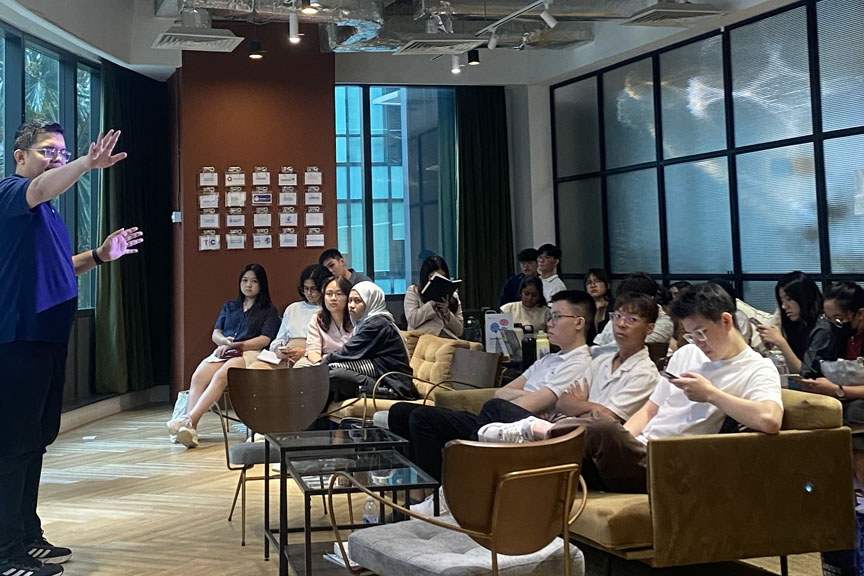
During their visit, the students were guided through SEEd.Lab’s bespoke programme by Mr Mohamad Farhan Mohamad Faizal, SEEd.Lab’s Ecosystem Development Officer.
He delved into several crucial aspects, including immersive exposure, engaging sessions, problem-solving tools introduced, bridging theory and practice, and entrepreneurial mindset development.
The visit clearly left a lasting impression on the students. Students such Ambreen Tanya Gulbul pointed out that, SEEd.Lab visit was an incredibly inspiring experience.
“I learned so much about the impactful work the company is doing in supporting social enterprises and underserved communities. This visit has profoundly deepened my interest in the crucial role finance can play in creating a more inclusive and sustainable future.”
She added, “It was eye-opening to see how venture capital can be used not just for profit, but to create meaningful social change. I truly admire SEEd.Lab’s commitment to empowering innovative solutions that tackle real-world challenges, and I found the team’s passion and purpose-driven approach incredibly motivating.”
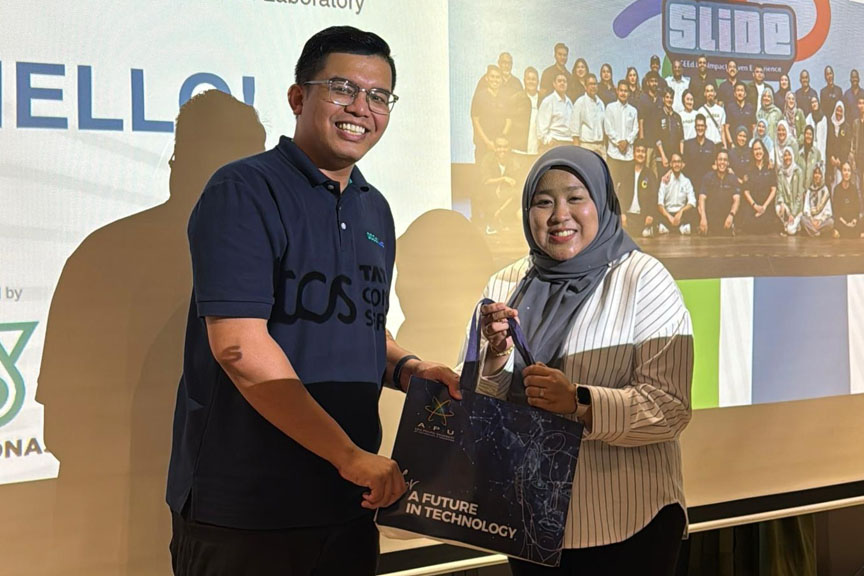
Her peer, Yew Pei Ming, shared a similar opinion, “Prior to this visit, my understanding of start-ups was mostly limited to profit-driven ventures. However, through this experience, I gained a new perspective on the importance of identifying overlooked societal issues – people in need – and addressing them by exploring root causes using techniques such as the ‘5Cs with 1H’ and the ‘working backwards’ approach.”
Pei Ming continued, “I hope APU will continue to organise more industrial visits like this, whether to corporate environments or start-up ecosystems, as they provide us with practical exposure beyond the classroom and help bridge the gap between academic learning and real-world industry practices.”
Tjia Kezia Yananta also highlighted a significant takeaway where he learned about the fundamental difference between enterprises with a societal focus versus conventional businesses that mainly chase profit.
“This industrial visit gave us practical, real-world knowledge beyond what we learn from lectures or online resources. The information shared by the experts is something we rarely get in a formal classroom setting.”
Kezia concluded, “APU not only prepares students to become job-ready but also empowers our goals, like starting our own businesses. This kind of visit helps both types of students: those who aim to be future employees can learn what they need to improve, and those with entrepreneurial dreams get exposed to the real start-up journey – including how businesses begin and grow.”
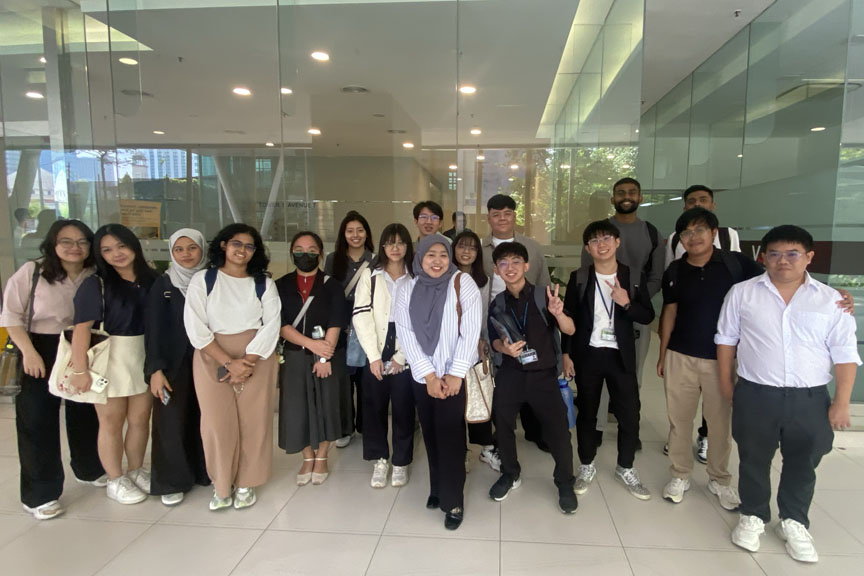
News & Happening
Download e-Brochures
Intake Calendar
Want to know more ?
Let’s Connect